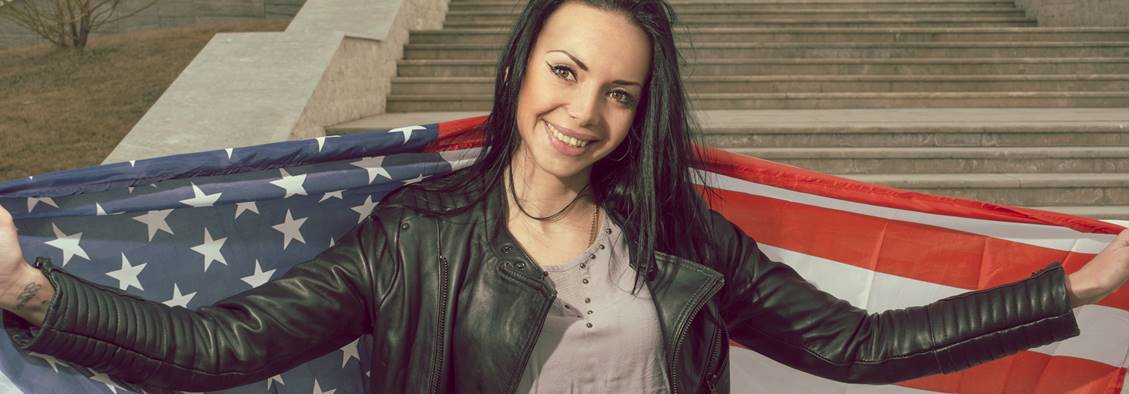Independence Day and Immigration
Independence Day embodies a spark of the human spirit to me. Its meaning is best articulated by Steven Pincus, a professor of history at Yale University, emphasizing that America’s Declaration of Independence was pro-immigrant. “In 1776 American Patriots faced problems of crushing sovereign debt, vituperative debates about immigration, and questions about the role of foreign trade. They responded by founding a government committed to open borders and free trade.”
Americans would be wise to remember Declaration’s fundamental principles because they are now under threat: Pincus argues that Trump’s principles are the reverse of those advocated by the founding fathers.
The Independence Day carries an additional meaning for American immigrants who feel more independent in the US than elsewhere, because American opportunities enhance their sense of independence. I explored the range of independence of those I call the “invisibles” – the immigrant women who – no matter how much they contribute to society as a special demographic – remain overlooked and underappreciated as a group, by public and policymakers alike.
The Invisibles
Stories of immigrant women show them achieving success under stress. I want to reveal their amazing role-model appeal in a series of books, for the world to see the unfairness of their invisibility—despite rapid growth of their ranks and contributions to America’s well-being and culture.
Now constituting 13% of all US females, immigrant women outpace their America-born counterparts in education level (11.6 percent hold Masters or Doctoral degrees, as compared with 10.8 percent of the native-born) and in owning businesses—9 percent to 6.5 percent, respectively—which still does not up their prominence as a special demographic.
What holds them back?
Double Stress
Immigrant women face double stress:
A. Stresses common to all women, such as glass ceiling and #MeToo
B. Stresses common to all immigrants, such as:
1. Stigma against immigrants
Social stigma against immigrants is haunting them for life. “Deep within our subconscious, all of us harbor biases that we consciously abhor. And the worst part is: we act on them,” writes Siri Carpenter in Scientific American.
2. Linguistic difficulties
Speaking broken English or English with an accent may sound sexy in Sofia Vergara. But other immigrants have to avoid certain occupations because foreign accent is an instant vulnerability. Research in language acquisition shows that one can learn correct grammar but cannot fully get rid of his/her accent, if a new language was acquired after puberty.
Successful cultural integration into the unique U.S.-American culture is not trivial, can take years—and people feel insecure all the way. Beyond food, dress, or body language – the visible sides of culture – adjusting to some deeper-layer cultural nuances, such as explicit vs. implicit communication style, or distinct set of values, or decision-making, needs a lot of work.
4. Soft Bigotry
Another stress of being an immigrant, as Phuong Mai Nguyen pointed out—is “soft bigotry,” or openly demonstrating low expectations of immigrant’s abilities as compared to the native-born. Here’s one example.
A good neighbor of mine, Lisa, commented on my blog mentioning how impressed she was with self-expression and language, “especially considering that English is the author’s second language.”
I know Lisa meant well. She just has no idea she was a little too casual to mention my foreignness. If she were my boss, that would drag my confidence way down, because when a professional person drops such a barely hidden self-compliment (saying she is a native speaker capable of judging me, while I would keep struggling with the language, never attaining her level), her remark would hurt both pride and performance. Why? Because a patronizing attitude of kindness thinly covers the true face of superiority. We all know that. Who would have thought that immigrants could be so sensitive? But many are.
It is theoretically possible to disregard soft bigotry (aka condescension), however, it leaves some scars. I choose to always forgive – but rarely forget it!
Women, Immigration, and Independence Day
From very visible Arianna Huffington to Isabel Allende to Natalie Portman to Diane von Furstenberg to Indra Nooyi, to thousands of invisibles, immigrant women earned their professional independence in tough competition amid double stress—and we need to appreciate that being more inclusive.
So, let’s celebrate Independence Day keeping in mind that the Declaration was much more than a proclamation of separation from the British Empire: it provided the blueprint for a new government. Americans broke away – in part – because they rejected restrictions on trade and immigration.
This is why we cannot allow our today’s government sponsor the next wave of xenophobia in November pre-election campaign. Welcoming the immigrants is not the thing of the past. It should never be.
Summary
Celebrating Independence Day, we remember that the Declaration rejected restrictions on trade and immigration—thus, we cannot allow our government to sponsor the next wave of xenophobia. In particular, diverse immigrant women, from famous to invisibles, earned their independence competing under double stress—and we need to appreciate that by being more inclusive.


